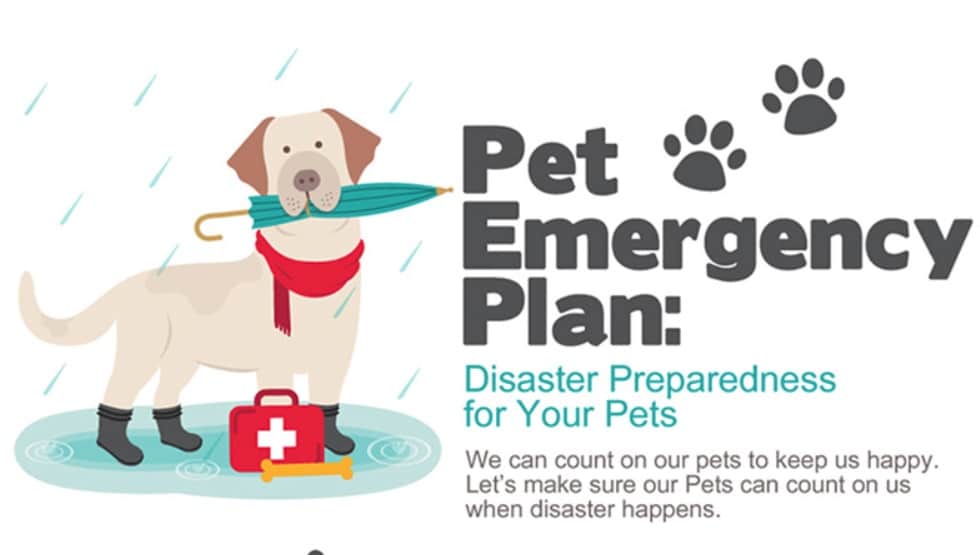FROM THE HUMANE SOCIETY OF ELMORE COUNTY
Saturday, 8 May was National Animal Disaster Preparedness Month but we think that deserves attention for a whole week. All of us need to plan for how we might cope with disasters and that should also include planning for our pets.
And while most of us think BIG in regard to a disaster – hurricanes, tornadoes, floods…. a singular house fire, or major water leak inside a home, or grass fire on a farm can all be disastrous for that family. Planning ahead for your pets is vital so that everyone is together and safe with the disaster is over. The first step in planning is to find a safe place to stay whether that is a friend, family member, emergency shelter run by a local organization (many of which will not accept pets or will have a limit as to how many) or even a pet friendly hotel outside of the affected area. Most Humane/Animal Shelters in our area are unable to “board” pets for families since we are “full” all the time. And, in the case of incoming large weather events in our area, local animal shelters tend to see a significant increase in intake right before hurricanes and holidays further impacting our available space.
1 – The first step is to HAVE A PLAN! Stay informed! Establish a safe space for your pets, have a plan with a neighbor or close friend to help if you’re not home. Make sure they know where your pet’s emergency supplies are. Have a copy of their shot records, important phone numbers like local Animal Control, Police, local boarding and Veterinarians. Plan an escape route, it might have to be by foot! Then practice with your family and pets.
2 – As part of making that PLAN above, and long before – Have your pets Rabies tags ON their collars and their collars on them, get your pet microchipped and ensure your information is up to date with the microchip company (hint – put your pet’s microchip number in your phone as well as photos of your pet). Make sure your pets are crate trained, just in case they have to be crated at a Boarding Facility, Vet, hotel or friend/family’s home. Also teach them to walk on a leash without freaking out as they may have to be walked for potty breaks at their temporary location. Practice traveling with them so they are ok in cars. If they have separation anxiety make sure you discuss this with your veterinarian, they can often assist with calming pills that you can add to their emergency pack.
3 – Have a dedicated pet emergency pack ready! Items should include plenty of water, food, pet friendly first aid kit, bowls for food and water, a slip lead so you can get your pets out quickly, medications (recommended 5 day minimum) waste disposal bags, LED light in case you have to evacuate at night, Blanket for warmth, toys/favorite bedding can help calm a scared pet, cat litter box, scoop and litter, photo of you and your pet for identification should you be separated.
4 – Make sure family, friends, neighbors know about your pets – give them a written sheet of paper with your pet’s species, breeds, ages, descriptions so that if you are gone, or they are caretaking and disaster happens they will have a reference to account for your pets. Of course, if you have one or more of your pets with you, make sure they know that so won’t be in a panic looking for a pet that is safe with you.
We hope you never need to use this but it will give you peace of mind knowing that you have done everything you can to be prepared to keep your pets safe. Don’t wait until the last minute to prepare as things can get chaotic when bad weather hits, or you are trying to help others near you who have not taken the time to plan. We want all families AND their pets to be as safe as possible during any disaster.






